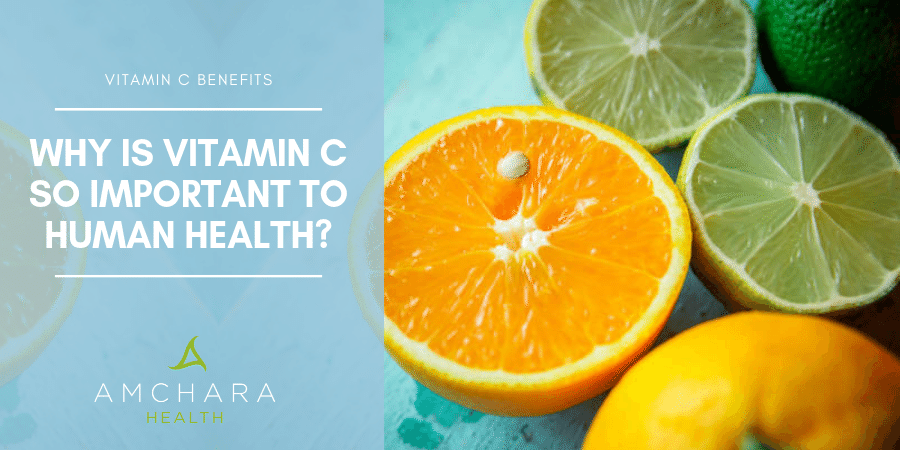Vitamin C has a well-deserved reputation as one of the most popular health food supplements globally, especially amongst those seeking effective immune support and a boost for flagging energy reserves.
But what many people don’t realise is that vitamin C has a multitude of other valuable functions in the body.
Attention on vitamin C has historically been focused on anti-viral and antioxidant protection but evidence is emerging for other activities.
According to several clinical, experimental and population studies, increasing vitamin C levels can result in a whole range of health benefits, including enhancing wound repair, protecting against cancer, increasing life expectancy, reducing the risks of cataracts, protecting against pollution and improving gum health.
Also known as ascorbic acid, vitamin C is a water-soluble vitamin and is abundant in many fruit and vegetables.
It is frequently added to foods as a preservative and is readily available in most high street supermarkets and health food shops in various supplemental forms:
- As a powder
- By tablet
- As a spray
- In a capsule
- As an effervescent
- In a time-release formula
- As a chewable gum
- In a liposomal formula
Why is vitamin C so important for human health?
The need for dietary sources of vitamin C is essential for humans; unlike more than 4,000 other species of mammals, humans are unable to synthesize vitamin C within the body.
This is because humans lack the last enzyme in the necessary biosynthetic pathway. (4)
During times of stress and toxic overload animals like goats can produce as much as 100,000mg vitamin C a day. (6)
For us to obtain this amount of vitamin C from the diet would entail eating about 1,400 oranges a day!
Fortunately, this isn’t necessary – through evolution, humans have developed mechanisms that allow the body to recycle used up vitamin C. (5)
However, for the purposes of preventing illness and diseases such as scurvy the human daily recommended intake for vitamin C is 40 mg. (1)
This may seem low, but it is actually the highest of all vitamins. (3)
Vitamin C is susceptible to damage by light, heat, oxygen, minerals and enzymes which may occur during food processing, preparation and storage. (7)
Losses in food due to these factors may necessitate a higher intake of vitamin C.
There are certain groups of the population who have higher than normal requirements for vitamin C, e.g. people on medication, those who are ill, pregnant women and smokers who typically have significantly lower levels of vitamin C than non-smokers. (2)
The best sources of vitamin C
Although vitamin C can be ingested via supplement form, most people are able to meet their vitamin C requirements by eating a varied diet including a wide, colourful range of fruits and vegetables.
A common misconception is that oranges contain the highest amount of vitamin C.
Surprisingly, guavas, strawberries, lemons, peppers, and Brussels sprouts each have higher milligram counts of vitamin C than oranges.
Other good food sources of vitamin C include:
- kiwis
- clementines
- grapefruits
- raspberries
- nectarines
- peaches
- mangoes
- broccoli
- kale
- cauliflower
- tomatoes
- potatoes.
Because cooking foods can destroy significant amounts of vitamin C, it is a good idea to consume plenty of raw vitamin C-rich foods as opposed to cooked versions.
Leaving the skins on fruits and vegetables during cooking can help to reduce the loss of vitamin C.
Important benefits of vitamin C
According to research, increasing vitamin C levels can result in a whole range of health benefits(9), from enhancing wound repair to relieving hot flushes and inhibiting the growth of Helicobacter Pylori.
But there are also many other lesser known benefits of vitamin C:
- Improves sperm quality
- Reduces exercise related muscle soreness
- Involved in cardiac health
- Boosts collagen production
- Increases cognitive function
- Reduces the likelihood of cataracts
- Helps prevent gout through uric acid reduction
- Linked to diabetes prevention
- Helps the body adapt to stress
- Detoxifies harmful chemicals
More good reasons for increasing vitamin C intake
Apart from keeping all engines revving in your immune system, scientists have discovered that by working from the inside out, vitamin C can help you to have healthier looking skin.
It’s all down to what happens in the cells just below the skin’s surface that make up the dermis.
These specialised dermal cells are the home of collagen production – the substance that literally holds you together.
Vitamin C plays a key role in the synthesis of collagen, which starts to lessen with increasing age.
Vitamin C reaches the skin by diffusing through tissue fluid from blood vessels in the dermis – once there it works alongside other key cofactors to produce collagen.
Maintaining adequate levels of vitamin C can really help to support your skin health through each life stage.
Stay happy and energised with vitamin C
It’s not just skin health that benefits from vitamin C, it can also help you fight fatigue and brighten your mood.
Researchers have identified that vitamin C is part of a complex chain of events that generate energy.
Energy production is heavily dependent on several vitamins and minerals – in particular vitamin C, which is an essential cofactor in the metabolic processes that produce energy from glucose.
Vitamin C is also essential for the absorption of iron which the body needs to carry oxygen to your cells in order to produce energy.
Low iron status is a common cause of fatigue.
Sufferers of low mood shouldn’t overlook the therapeutic benefits of Vitamin C.
It’s found in high concentrations in the brain and plays a key role in the synthesis of the neurotransmitters norepinephrine and dopamine – both necessary for mood regulation.
Studies have found a correlation with low levels of vitamin C and depression. (8)
Take away
The significant health benefits of vitamin C are far reaching, so make sure you up your intake of vitamin C rich foods every day.
We always take an evidence-based approach and aim to provide you with actionable tips on your journey to optimal health.
Did you enjoy this article?
What are your favourite sources of vitamin C?
We’d love to hear your thoughts.
READ THIS NEXT:




